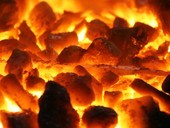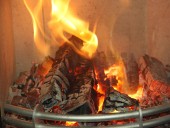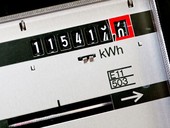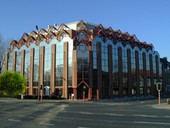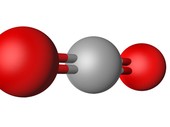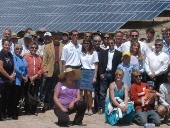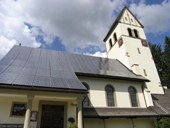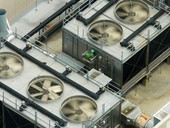Prevailing formulations especially in the Czech mass media could give the impression that the German nuclear phase-out is a hysterical reaction to the Fukushima Daiichi nuclear power plant accident. In fact it was only a return to the original plan, which was enacted in an agreement negotiated with the operators of nuclear power plants.
Archiv článků od 9.4.2012 do 2.7.2012
Environmental economists conference EAERE 2012 continued by the second day of lectures. Plenary Keynote Lecture named Integrated Assessment Modeling in Economics and Climate Change was held by prof. William D. Nordhaus from Yale University, USA. The lecture was followed by Plenary Panel Session on Rio +20 conference.
The EAERE 2012 conference continued on Thursday 28 6th 2012 with lectures, which were arranged in three blocks with 16 parallel sessions focusing on different aspects of environmental economics. After the first block of lectures the main lecture focused to the valuation of ecosystem services in UK was included. The first day of the conference was closed by a social evening at the historical building of Rudolfinum.
A simplified procedure is described which determines the sizes of the PV array and wind turbine in a PV/wind energy hybrid system. Using the measured values of solar and wind energy at a given location, we review a method based on a simple graphical construction which determines the optimum configuration of the two generators that satisfies the energy demand of the user throughout the year.
STEM - agency for public opinion research - presented the results of the survey focused on support for nuclear energy in the Czech Republic. STEM prepares research on this topic for CEZ since 1994. Despite the support is higher than that in previous survey conducted in 2011 after Fukushima Daiichi disaster, it is far below of that in 2009 or 1994.
Last week Alliance for Energy Independence released the results of public opinion research focused on support for renewable energy sources, which it entered at the SC&C. CEZ responded by publishing the results of another survey focused on support for nuclear energy, which it entered at the STEM. Scope of the SC&C study is broader. On other hand questions of STEM study are more suggestive.
Construction of Science and Technology Park and Technology Transfer Centre Vysočina was launched June 14th 2012 by the foundation stone ceremony in Jihlava. It is only the second center of this type in the region. The technology park will be open by January 10th 2014. In the project participate two universities: CTU in Prague and MENDELU in Brno. Main focus is in technologies that reduce emissions and sustainability in the energy sector and in sectors such as manufacture of electrical equipment, aerospace, automotive, IT and construction.
This paper examines the process of burning piece of wood in the low power fireplace (units to tens of kW). This combustion process is cyclical and what users are most interested in the combustion device, the frequency of fuel to the fire. The paper defines the basic concepts such as burn-up curve and the burn rate that have close relationship to the rate of reloading.
After the collapse of the Soviet Union, all diplomatic obligations to Europe were taken over by the Russian Federation. A new relationship between Russia and the European Union has not developed in the beginning simply and has grown up in its present form in successive steps. Negotiations after 2000 were complicated due to situation with the recognition of Kosovo and the Russian-Georgian conflict (2008).
Greenpeace International, in collaboration with the European Renewable Energy Council (EREC) prepared a plan for future energy development across the EU. The proposal is aimed at minimizing the energy dependence on unstable regions in particular. The core concept of energy by Greenpeace and EREC is to maximize the effective use of primary energy sources. For this reason, it is anticipated a gradual increase in the share of renewable sources.
According to the results of tests of the Research Energy Centre Technical University Ostrava, each operator of combustion plant can partially affect emissions. For older boilers it is better to give a smaller dose of fuel more often. After adding the fuel it is better to let it burn up, not close the inlets for combustion air.
The essence of the combustion process is burning fuel. This is a phenomenon that the authors clearly and wittily likened to the relationship of man and woman. At the same time in the article they explain in detail the technical terminology such as calorific value, combustion heat, humidity of wooden fuel, and the efficiency of common and condensing boilers.
At a European level a Directive of the European Parliament and Council 2010/31/EU on the energy performance of buildings (EPBD) has been released in 2010 whereas the main requirement is to reduce energy consumption in buildings (replacing 2002/91/EC). A set of European standards have been issued for its implementation, eg EN 15232 Energy performance of buildings - Impact of automation, control and management of buildings. In the Czech Republic the Directive was implemented by Act No. 406/2000 Coll. energy management and decree 148/2007 on the energy performance of buildings. The current global trend is characterized by promoting energy efficient technologies. The aim of this work is to summarize domestic household consumption, it´s prediction and analysis of potential energy savings by using the wiring system (BACS).
Energy Charter now has 53 members, non-European countries in Energy Charter are Australia, Japan, Kazakhstan and Uzbekistan. European Union in the Charter is represented by the European Community and Euratom. There are also 24 observer countries (eg Canada, Iran, Nigeria, Qatar, USA and Venezuela) and 11 institutional observers.
The Russian Federation guarantees one-third of natural gas supply to the European Union. This share has to grow in the medium term to one half. But this is disputed by many critics, mainly because no newly opened bearings and no investment to new projects. What is the real state of the gas production in Russia?
Christian churches use a slightly different terminology than the general population. Instead of protection of the environment they are talking about protection of God's creation. From their perspective, the topic is not ecological but theological. In the context of renewable energy sources social aspects are much more accented.
Less experienced operating managers in the branch of mechanical services of building can easily get difficulty in identifying the causes of technical problems, which sometimes a common practice brings. The article gives a table of causes and effects of defects and disorders related to cooling and heat sources.
zpět na aktuální články
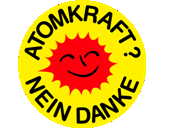
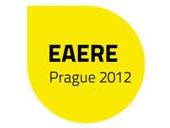
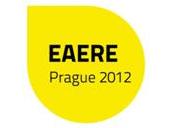
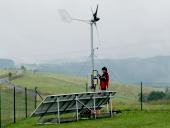
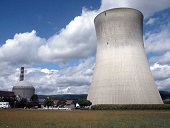
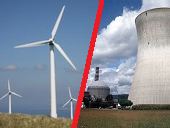
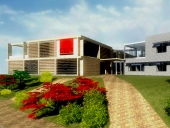

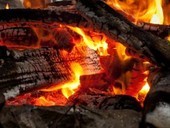
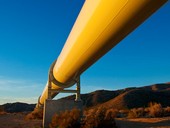
![Energy [R]evolution](/docu/clanky/0086/008673ou.jpg)
